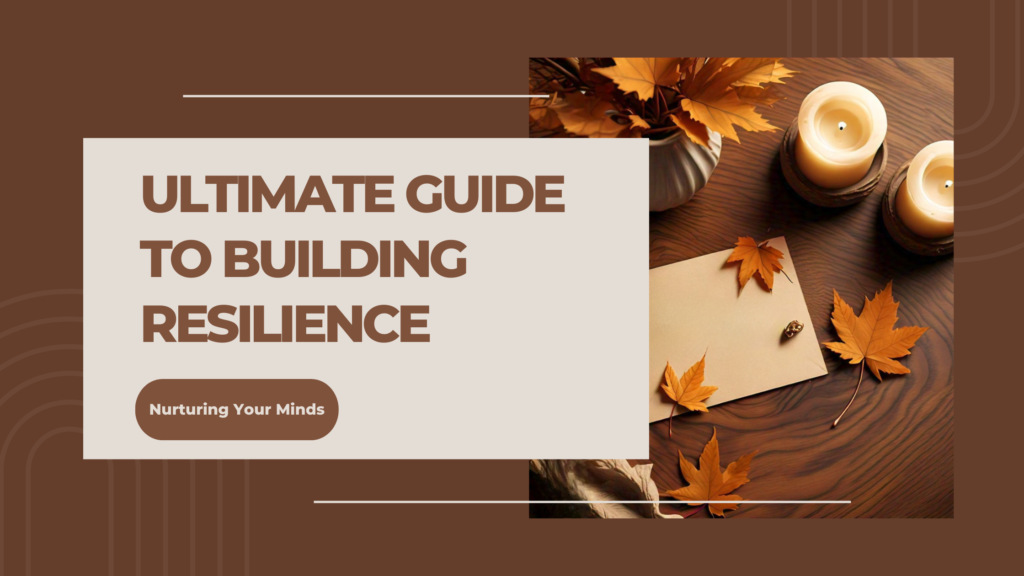Imagine waking up every morning and feeling at peace with who you are, no need to seek validation, no need to fear rejection, just a constant sense of contentment that comes from within. This is the power of self-love, and it’s time we all embrace it.
Self-love isn’t just a trendy phrase thrown around in self-help books or social media posts; it’s a profound psychological concept that forms the cornerstone of mental well-being. But what is self-love, really? How do you develop it, and why is it so crucial to our overall health?
What Is Self-Love?
Self-love is often misunderstood as mere self-indulgence or selfishness, but in reality, it’s far deeper and more meaningful. At its core, self-love is the practice of caring for, valuing, and accepting yourself unconditionally. It’s about recognizing your worth and treating yourself with the same kindness, respect, and compassion that you would offer to a close friend.
From a psychological perspective, self-love is crucial for mental health and well-being. It serves as the foundation for self-esteem, resilience, and emotional stability. Without self-love, individuals are more vulnerable to negative thoughts, depression, anxiety, and self-destructive behaviors. But with it, you unlock the potential for a fulfilling and joyful life.
What Self-Love Truly Means and How to Cultivate It
True self-love is not just about feeling good about yourself when things are going well; it’s about maintaining that sense of worth even when you face challenges, failures, or criticism. Cultivating self-love involves a combination of self-awareness, self-compassion, and self-care.
Self-Awareness:
Understanding your emotions, thoughts, and behaviors is the first step to self-love. This awareness allows you to identify negative patterns and beliefs that undermine your self-worth. Journaling, mindfulness, and therapy can be effective tools for developing self-awareness.
Self-Compassion:
Self-love means being gentle with yourself when you make mistakes or fall short of your expectations. Instead of harsh self-criticism, practice self-compassion by acknowledging your imperfections and treating yourself with kindness.
Self-Care:
Taking care of your physical, emotional, and mental health is an essential part of self-love. This includes eating nutritious food, getting enough sleep, exercising regularly, and setting aside time for relaxation and hobbies that bring you joy.
How Do I Love Myself?
Loving yourself might seem like a daunting task, especially if you’ve spent years battling self-doubt or low self-esteem. But the truth is, self-love is not an all-or-nothing deal; it’s a gradual process that starts with small, consistent actions.
- Practice Positive Affirmations: Start your day with affirmations that reinforce your self-worth. Statements like “I am worthy of love and respect” or “I accept myself exactly as I am” can rewire your brain to think more positively about yourself.
- Set Boundaries: Loving yourself means protecting your energy and well-being. Learn to say no to people or situations that drain you, and prioritize your needs over the demands of others.
- Celebrate Your Achievements: Take time to acknowledge and celebrate your accomplishments, no matter how small. This reinforces a sense of pride and encourages a positive self-image.
Not practicing Self-Love, can lead to a stressful life, by criticizing ourselves during our setbacks and challenging circumstances. And if you are already in such kind of stress, whether it is work related or academic or personal one, enroll in our De-Stress Nurturing Program, in order to get real life practical solutions to manage and deal with your stressors.
How to Start Loving Yourself Again
If you’ve lost touch with self-love due to past experiences or life’s challenges, it’s never too late to reconnect with yourself. Here’s how you can start loving yourself again:
- Forgive Yourself: Holding onto guilt, shame, or regret can keep you stuck in a cycle of self-hatred. Forgiveness is a powerful act of self-love that frees you from the past and allows you to move forward with compassion and understanding.
- Reconnect with Your Passions: Engage in activities that you love and that bring you joy. Whether it’s painting, dancing, or spending time in nature, doing what you love is a way to nurture your soul and rebuild your connection with yourself.
- Surround Yourself with Positivity: The people you surround yourself with can have a significant impact on your self-esteem. Choose to be around those who uplift, support, and encourage you to be the best version of yourself.
How Do You Develop Self-Love?
Developing self-love is a continuous journey that requires patience, commitment, and practice. Here are some strategies to help you cultivate a deeper sense of self-love:
- Mindful Self-Reflection: Take time each day to reflect on your thoughts and feelings. Mindfulness practices such as meditation can help you become more aware of your inner dialogue and shift from negative self-talk to more loving and supportive thoughts.
- Embrace Your Uniqueness: Recognize that you are unique, with your own strengths, talents, and quirks. Celebrate what makes you different, and let go of the need to compare yourself to others.
- Nurture Your Inner Child: Often, our lack of self-love stems from unmet needs in childhood. Nurture your inner child by giving yourself the love, attention, and care that you may have missed growing up.
If you are a person who does Journaling or wants to start it, here is the best tool for you to practice Self-Love.
13 Habits of Self-Love Everyone Should Adopt
Developing self-love is an ongoing process, and like any habit, it requires consistent practice. Here are 13 habits of self-love that everyone should adopt:
- Practice Daily Gratitude: Start each day by listing three things you’re grateful for. This simple practice can shift your focus from what’s lacking to what’s abundant in your life.
- Speak Kindly to Yourself: Pay attention to your self-talk and replace any negative or critical thoughts with kind, encouraging words.
- Prioritize Self-Care: Make time for activities that nourish your body, mind, and soul, such as exercising, meditating, or taking a relaxing bath.
- Set Healthy Boundaries: Learn to say no to things that don’t serve your well-being and yes to what truly matters to you.
- Celebrate Your Wins: No matter how small, celebrate your achievements and recognize your progress.
- Let Go of Perfectionism: Embrace your imperfections and recognize that making mistakes is a natural part of being human.
- Surround Yourself with Positivity: Spend time with people who uplift and support you, and distance yourself from those who bring you down.
- Nurture Your Passions: Engage in activities that you love and that make you feel alive and fulfilled.
- Practice Forgiveness: Let go of past mistakes and forgive yourself for any perceived shortcomings.
- Listen to Your Body: Pay attention to your body’s signals and give it what it needs, whether that’s rest, nourishment, or movement.
- Cultivate a Growth Mindset: Embrace challenges as opportunities for growth and learning, rather than as threats to your self-worth.
- Invest in Yourself: Whether it’s learning a new skill, pursuing a passion, or investing in your health, prioritize your growth and well-being.
- Practice Mindfulness: Stay present in the moment and appreciate the here and now, rather than worrying about the future or dwelling on the past.

Ways to Practice Self-Love
Practicing self-love doesn’t require grand gestures; it’s often the small, consistent actions that make the biggest difference. Here are some ways to practice self-love in your daily life:
- Start Your Day with Intention: Set a positive tone for the day by starting with an intention or affirmation that aligns with self-love.
- Create a Self-Love Ritual: Dedicate a few minutes each day to a self-love ritual, such as meditating, journaling, or taking a mindful walk in nature.
- Pamper Yourself: Treat yourself to something special, whether it’s a spa day, a favorite meal, or simply time alone to relax and recharge.
- Practice Self-Compassion: When you face challenges or setbacks, treat yourself with the same kindness and understanding that you would offer to a friend.
- Unplug and Reconnect: Take regular breaks from technology and social media to reconnect with yourself and your surroundings.
- Set Personal Boundaries: Protect your time and energy by setting clear boundaries in your personal and professional life.
- Invest in Your Well-Being: Whether it’s through therapy, coaching, or self-help resources, invest in your mental, emotional, and physical well-being.
- Practice Gratitude: Cultivate a sense of gratitude by regularly acknowledging the positive aspects of your life and yourself.
- Embrace Self-Discovery: Continuously learn about yourself, your needs, and your desires, and take steps to honor them.
- Surround Yourself with Love: Build a support system of friends, family, and mentors who encourage and uplift you.
Self-Love Journals can be an excellent resource in order to practice it in a more effective manner and to stay focused and on track.
Self-Love Habits
Developing habits that reinforce self-love is key to making it a natural part of your life. Here are some self-love habits that can help you maintain a positive relationship with yourself:
- Daily Affirmations: Start each day with affirmations that reinforce your self-worth and set a positive tone for the day.
- Mindful Eating: Practice mindfulness during meals by paying attention to your hunger cues, savoring each bite, and choosing nourishing foods.
- Regular Movement: Incorporate physical activity into your routine in a way that feels good for your body, whether it’s yoga, dancing, or walking.
- Adequate Rest: Prioritize getting enough sleep each night to ensure your body and mind are well-rested and recharged.
- Emotional Check-Ins: Regularly check in with your emotions and allow yourself to feel and process them without judgment.
- Creative Expression: Engage in creative activities that allow you to express yourself and tap into your inner world.
- Positive Social Connections: Foster relationships with people who support and uplift you, and distance yourself from toxic or draining relationships.
Ways to Cultivate Self-Love
Cultivating self-love is an ongoing process that requires intention, practice, and patience. Here are some ways to cultivate self-love in your life:
- Practice Self-Reflection: Regularly take time to reflect on your thoughts, feelings, and behaviors, and identify areas where you can practice more self-love.
- Engage in Self-Care: Prioritize activities that nourish your body, mind, and soul, and make self-care a non-negotiable part of your routine.
- Embrace Your Authentic Self: Accept and embrace all parts of yourself, including your strengths, weaknesses, and unique qualities.
- Let Go of Negative Self-Talk: Challenge and reframe negative thoughts about yourself, and replace them with positive and supportive affirmations.
- Set Meaningful Goals: Set goals that align with your values and aspirations, and take steps towards achieving them with self-compassion and perseverance.
- Celebrate Your Journey: Acknowledge and celebrate your progress on the journey of self-love, and be proud of the steps you’ve taken towards loving yourself more fully.
- Seek Support: Surround yourself with a supportive community of friends, family, or professionals who encourage and guide you on your self-love journey.
Conclusion: The Lifelong Journey of Self-Love
Self-love is not a destination but a journey, a continuous process of learning, growing, and evolving. By incorporating these self-love habits into your life, you can begin to experience the profound benefits of truly loving yourself. So, what self-love truly means is not just about feeling good; it’s about nurturing a relationship with yourself that is based on respect, kindness, and unconditional acceptance.
Start today, take small steps, and remember: self-love is the foundation upon which all other forms of love are built.



